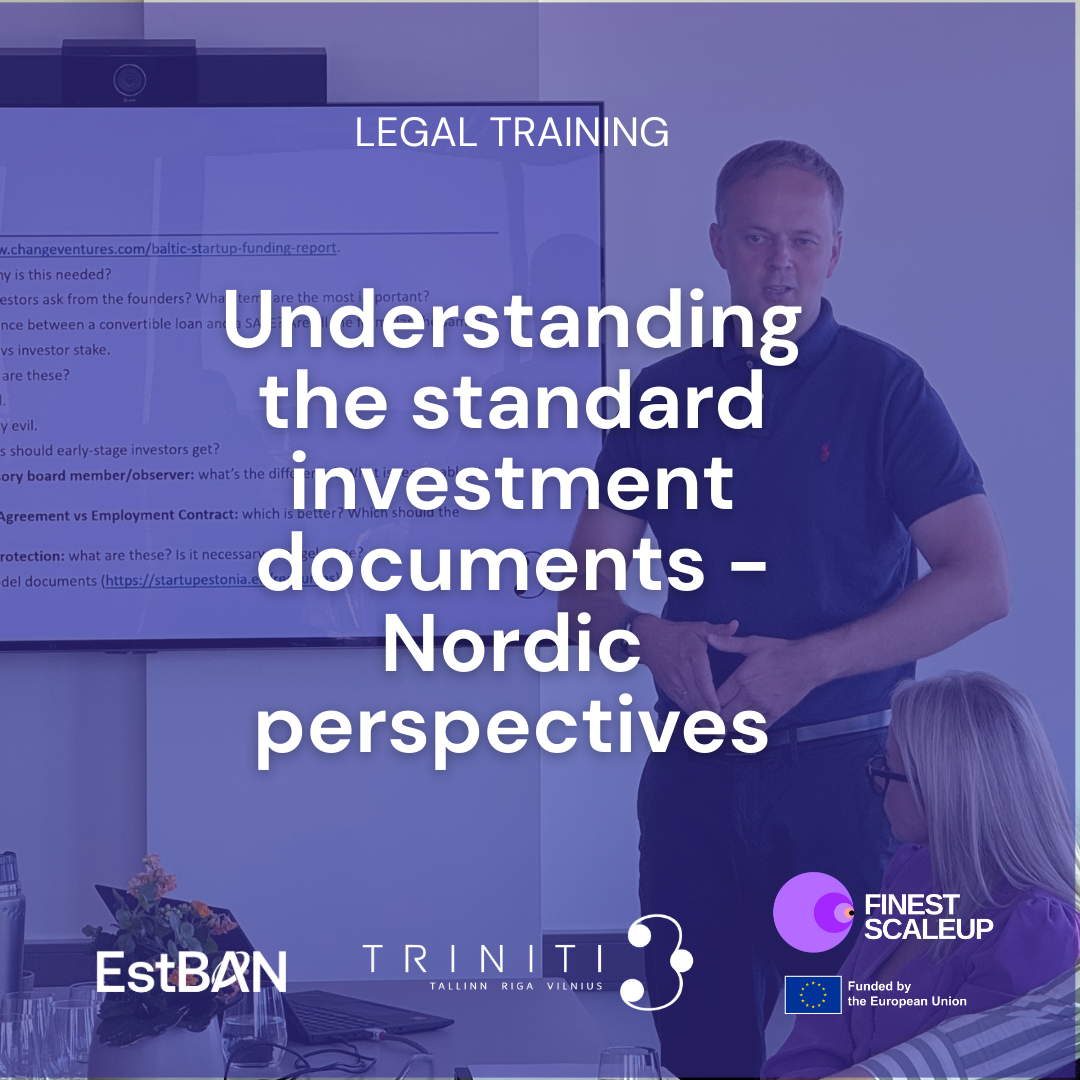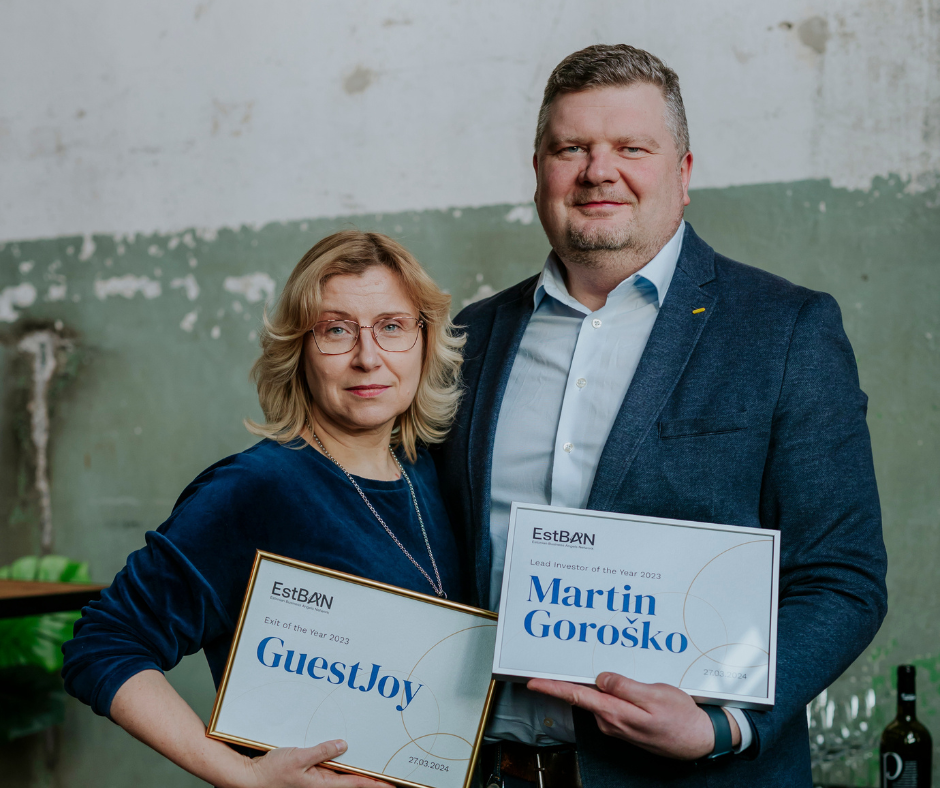
Andrei Korobeinik, the parliamentarian who built up rate.ee, sold it to EMT in 2006, and bought it back in 2012, has become the face of the Estonian startup community running the jury at the annual TV show Ajujaht where young firms seek to jumpstart their companies and attract investors.Andrei was interviewed by Tarmo Virki, editor in Forbes Estonia magazine.
What’s your plan in the investment world?
My dream would be to deal with the investments hands-on, but I’d never have the time. The most attractive option for me would be to have a lot of different companies; that would inspire me. If you deal with only a couple you are deeply focused on them and you see less.
Are there any success stories in your portfolio in addition to rate.ee?
There are some, which can net quite well. The last project, Flirtic, is quite successful. It will definitely be a big company; the question is whether it’s going to be big globally or within the region. The foundations are there, but it all depends on the execution. There has been very little innovation in the dating business. Flirtic stands out among them, as you have to exercise very little effort to use it. The main problem with dating services so far has been that people don’t know how to use them. We are eliminating this. Our initial data shows that Flirtic is used more as a social network, not really as a dating site that people leave behind once they find someone.
What is your main criterion when making investments?
It’s definitely the team. As I don’t have time for a really hands-on approach I cannot do much if the team is not up to it. On the other hand – I don’t think it’s right that we have quite a lot of investors who want to lead startups.
How do you measure the teams?
Ideally they have some track record to indicate their capability. If not, I look at whether they have the skills, if they understand what they do and whether they have a clear vision. The skills can come from different places: a career in a large company, a renowned university, it’s very subjective. Everything depends on the team and their motivation. They have to take it seriously; it cannot just be an evening hobby without any ambition to actually execute upon it. All the competitions and accelerators are cultivating the idea that it’s fun to do a startup and it does not need much of a commitment. Usually it ends with people going back to their daily work. This is a serious problem.

Any solutions?
The economic crisis solved the issue of time: if you don’t have work you do have the time. Now there are very few new startups, and the problem is deepening. We have a lack of workforce in IT and it’s not going to disappear in the coming years. There are jobs for thousands of people, it’s clear that the universities cannot fulfill that demand.
It seems that most Estonian new-born companies are focusing on small and specified offerings and very few are trying to change the world?
These small things are usually the ones that succeed: you do something you like, which means you spend time on it. You might not become a millionaire, but you do something you enjoy. These projects are also understandable, also for the bank. You borrow 3000 euros for a year and you have the business. The YouTube story of losing a lot of money before a high-valued exit is not possible in Estonia.
So startups leave?
In addition to pragmatic reasons – lack of money and people – there’s the situation where cost per developer, including taxes, in Estonia is as high as in Silicon Valley.
How would you describe the angel investment market in Estonia?
It’s in its very early stages. Before EstBAN it was very difficult to invest jointly. Every deal needed very long negotiations. The market was there before EstBAN but the examples show that it takes off only after syndicated investments are starting. So far we have not had that. I believe this will happen this year.
Do we have a startup bubble?
We definitely do. When Estonian startups started in 2005-2006 no one knew of us, we had strong startups, but no reputation. Now the situation has turned around: we have a good reputation but this is based on past achievements. It is good, but we have to hurry to benefit from it.
How could we do this?
We need smart immigration. Our own resources do not allow for fast growth. If someone from Microsoft Singapore wants to move to Microsoft Estonia, Microsoft has to publish a job ad, collect CVs, take them to the Ministry of the Interior Affairs, prove to them the person in Singapore is the best. After that the ministry digests it for a few months and decides if he can come. Microsoft can handle this process, but startups that deal with niche products cannot. One out of 15 people has to take on a half-year project of communicating with the ministry.
How would you describe the current state of the Estonian startup scene?
The presentation skills have grown fast over the last 6 years. It used to be a complete disaster, but now it’s good. It’s definitely difficult to find money. You cannot go abroad for the seed money of 50-200K. As Estonia decided not to take part in the European Investment Fund’s programme in its early stage it’s 2.5 times more difficult to raise money in Estonia than in Latvia and Lithuania now. That’s why so few new startups have been born in Estonia in the last 3-4 years.
How would you compare Estonia to Latvia and Lithuania?
We have had more success stories, but it’s been much easier to find seed financing in Latvia and Lithuania over the last few years. Therefore we risk losing out to them in the coming years and making our fame a thing of the past. Today, Estonia is known and Latvia, Lithuania not so much. But that’s not enough to bring in investors for the seed stage from outside. To get a good investment, an Estonian startup has to buy a plane ticket. In Latvia and Lithuania there is seed money available to cover that ticket, in Estonia the entrepreneur has to reach into his own pocket.
If I set up a company with 3 friends where should I look for starting capital?
There are not too many options. If it’s an IT company you have to start in the evenings, work 8 hours in the office, then 6 hours for the startup and continue this way for many months. You finish the prototype or acquire the first clients and go to the business angels, you get the money on bad conditions, a low valuation, buy a plane ticket, go to Silicon Valley and raise the money there. Estonian startups often put their price tags too high, don’t get the money and get nowhere.
What do you want to achieve?
For me it’s an opportunity to learn and look into things from the inside. Some day when I have more time I will be able to take part more and also learn. B2C is my field, that’s what I understand and can develop together with these companies.



